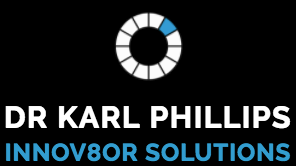Skill
Skill
The intellectually disciplined process of actively and skilfully conceptualising, applying, synthesising, and/or evaluating information gathered from, or generated by observation, experience, reflection, reasoning or communication, as a guide to belief or action, then working the the follow-on process of working through the details of the problem often by mathematics or systematic repeatable operations to reach a solution or solutions
Competency
Competency
Specialist
Competency Level
Competency Level
82%
Knowledge (Theories, Ideas & Concepts)
Through Professional/Personal Study Gained Through Experience
Skills & Application of Knowledge
in Real World Situations
Together with Responsibilities/Accountabilities
Selected Challenges & Approaches
Together With lessons Learnt
Selected Achievements & Successes
Together with Any ‘So What’ Statements of Insights
